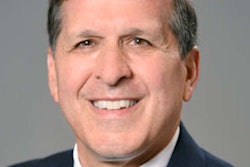
Several factors, including affordability, accessibility, and dental anxiety, may lead patients to avoid seeking dental care, suggesting the need for psychological management and improved communication. The study was published in Oral Diseases.
Furthermore, reviewing dental care affordability and providing better training for dentists in reducing anxiety and building trust could help improve patient attitudes, the authors wrote.
"These findings make a potentially fundamental contribution to the improvement of dental care and support practitioners in enriching their understanding of dental avoidance behavior," wrote the authors, led by Márton Lukács of the University of Debrecen in Hungary (Oral Dis, October 6, 2024).
For this qualitative study, 16 patients with a mean age of 46 were interviewed. Semistructured interviews with 21 questions explored participants' perceptions and experiences. The interview questions discussed topics such as reasons for attending or avoiding dental care, procrastination, dental issues, preferences, motivation, pain management, treatment experiences, anesthetics, expectations, and dental anxiety.
Ten themes emerged regarding patients' attitudes toward dental care attendance: environment and equipment, fear and anesthesia, procrastination, dissatisfaction with the dental care system, expectations of dentists, trust, edentulousness and social status, financial concerns, aesthetics, and dentist behavior, they wrote.
Many patients said that the dental office environment and medical tools often triggered anxiety, particularly due to the smells, sights, sounds, and physical contact during procedures. Procrastination was common, with some delaying care until the pain became unbearable. Patients expressed frustration with the lack of affordable specialized treatments, including advanced tooth replacement and aesthetic procedures.
On a personal level, patients discussed expectations of dentists, emphasizing the importance of trust, communication, and understanding behavior, which could enhance adherence to care, they wrote.
Also, financial factors influenced patients' willingness to seek care, with some prioritizing higher-quality treatments despite the cost. Lastly, patients valued both technical skill and gentle, communicative behavior in their dentists, particularly when considering aesthetic interventions as important for self-image and attractiveness, they wrote.
However, the study had limitations. The study lacked a diverse sociodemographic sample, so the results should be interpreted and generalized with caution, they added.
"The results indicate the need for a more comprehensive treatment approach to the management of dental care related negative emotions," Lukács et al concluded.




















